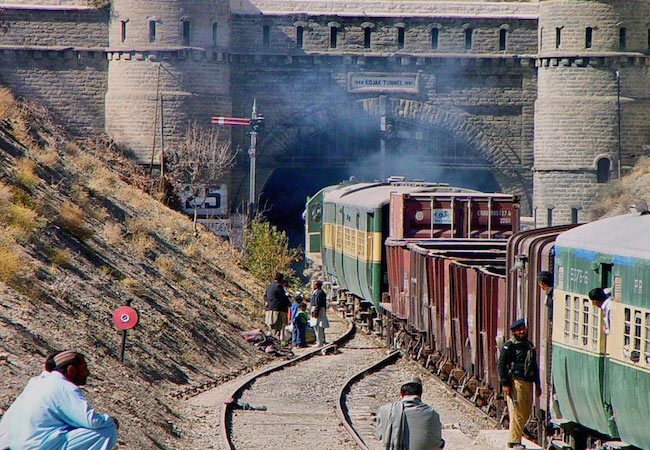Indian involvement in Baluchistan unrest

By Saima Afzal
Due to the geostrategic location of South Asia, the global powers always had their interest in this region. The interests of different international and regional players have come into sharp focus. Being an immediate neighbor, the external players’ interests’ in Afghanistan directly impact upon Pakistan’s interests and security. There is no other country than Pakistan which became a victim of terrorism by being a partner in war on Terrorism. There are some external and internal factors which are involved in creating troublesome a situation in Pakistan, particularly in border areas of Pakistan. Geographically, Baluchistan the largest province of Pakistan is at junction point of South Asia, Central Asia and gateway to Middle East. The abundance of natural resources further enhances importance of the province. It has been center of gravity not only for the great powers but also for regional powers.
The close ties between Afghanistan and India post 9/11 pose serious security challenges to Pakistan security. These strong ties between both countries make Pakistan’s eastern and western borders insecure. India has increased diplomatic presence and opened four consulates (Herat, Jalalabad, Kandhar and Mazar-e-Sharif) close to Pakistan border regions, and has a role in fomenting trouble in Pakistan’s tribal areas. India’s intelligence is working in Afghanistan and Pakistan’s security establishments perceive that it is involved in subverting activities against Pakistan. Its agenda is to provoke insurgencies in FATA and Baluchistan. However, it is unavoidable reality that India is involved in subversive activities in Pakistan’s Baluchistan province by using the soil of Afghanistan, whereas Indian consulates covertly assist, train, and finance the terrorists against the Pakistan by projecting them as freedom fighters. It is also claimed that it provided training and funds to the Baluchistan Liberation Army (BLA), which was initiating a separatist movement.
Indian involvement in Baluchistan unrest cannot be ignored because it is due to the changing geopolitical environment of the region. India, which is dreaming to become a hegemonic power of the region and to dominate the Arabian Sea and Indian Ocean, is upset due to the growing influence of the China in the Gwader port. A fully-developed and functional Gwader port near the Strait of Hormuz enables China to frustrate India’s dream of dominating regional waterways. New Delhi feels that the Gwadar port would have serious strategic implications for India. It perceives that it would empower Pakistan to control strategically important energy sea-lanes on the Persian Gulf. India also views Chinese involvement in Gwadar with suspicion and thinks that China wants to set up bases and outposts across the globe to monitor and safeguard energy flows.
While, addressing at T S Narayanaswamy Memorial in Chennai, in 2008, the Indian Naval Chief, Admiral Suresh Mehta expressed his views on the development of Gwadar port that, it had ‘serious strategic implications for India.” Hence, India is developing Iran’s Chabahar port in competition of China for balance of power and for getting access to Afghanistan and Central Asian Republics bypassing Pakistan in transit trade with Iran and other states. It is not wrong to say that India want to get control over the province due to the energy resources. China is close partner of Pakistan and it is biggest hurdle in the way of India becoming a regional power.
The newly appointed foreign ministry spokesperson Qazi Khalilullah, said at weekly briefing that “We have been taking up the issue of Indian involvement in various parts of Pakistan from time to time, particularly when we have talks with them”. Pakistan is a sovereign state and will never allow and compromise that external actor involve in the internal matter of Pakistan. Pakistan should take steps to eliminate these actors who are involved in destabilization of the country.




